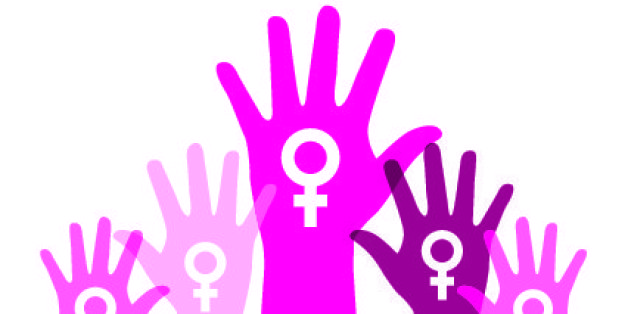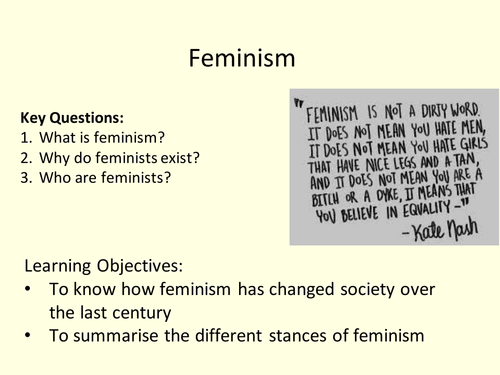Remember that time in high school when you were told to write an essay about the pros and cons of feminism? It felt like a debate, not a discussion. It felt like a divisive issue, not a complex social phenomenon. But feminism isn’t just a word or a label; it’s a powerful lens through which we can understand our world. The sociology of feminism helps us see how gender shapes our lives, our social institutions, and our very understanding of what it means to be human.

Image: www.genderandeducation.com
The sociology of feminism is a vital field that analyzes the intersections of gender, power, and social change. It goes beyond simplistic definitions of what feminism is, delving into the intricate ways gender affects our individual lives and shapes larger social structures. By examining the historical, cultural, and economic forces that produce gender inequality, it challenges us to think critically about the world around us and work toward a more just future.
Understanding the Roots of Feminism
Feminist sociology emerged from the intersection of two disciplines: sociology and feminism. Sociology, with its focus on social structures and social change, provided a framework for examining gender inequality in a systematic way. Feminism, with its commitment to challenging patriarchal structures and advocating for women’s rights, offered a critical perspective on existing power dynamics and social norms.
Early feminist scholars, such as Harriet Martineau and Jane Addams, made significant contributions to understanding the social realities of women in the 19th century. They documented the ways in which women were marginalized in education, employment, and public life. Their work laid the foundation for later generations of feminist sociologists to build on.
The second wave of feminism in the 1960s and 1970s brought renewed attention to women’s rights and sparked a wave of scholarly research on gender inequality. This era saw the emergence of groundbreaking works like Betty Friedan’s “The Feminine Mystique,” which exposed the limitations imposed on women by traditional gender roles. These works fostered a deeper understanding of the social construction of gender and its implications for women’s lives.
Exploring Different Perspectives
Different Waves of Feminism
Feminism is not a monolithic movement. It is a diverse and evolving field with a rich tapestry of perspectives. Different waves of feminism have emerged over time, each reflecting the social and political context of its era. From the focus on suffrage in the first wave to the emphasis on intersectionality in the third wave, feminist thought has constantly evolved to address the ever-changing realities of gender inequality.

Image: www.tes.com
Intersectionality
A key concept in contemporary feminist sociology is intersectionality. Coined by legal scholar Kimberlé Crenshaw, intersectionality recognizes that women’s experiences are shaped by multiple social identities, including race, class, sexual orientation, and disability. It challenges the tendency to view gender as a single, isolated factor and acknowledges the complex interplay of social forces that shape individuals’ lives.
Feminist Theory & Methodologies
Feminist sociology is not only about understanding the social causes and consequences of gender inequality; it also encompasses a variety of theoretical and methodological approaches. Feminist scholars employ diverse research methods, ranging from qualitative interviews and ethnographic observation to quantitative data analysis, to challenge traditional perspectives and generate new knowledge about gender relations. They also develop theoretical frameworks, such as standpoint theory and feminist epistemology, to explore the ways in which knowledge itself is shaped by gender.
Current Trends and Future Directions
The sociology of feminism is a vibrant and dynamic field, constantly adapting to new developments and challenges. Today, feminist sociologists are actively engaged in research on a wide range of issues, including gender-based violence, reproductive rights, the impact of technology on gender relations, and the challenges of masculinity in a changing world.
Recent research has highlighted the importance of considering the experiences of marginalized groups, such as transgender individuals and women of color, in understanding the complexities of gender inequality. Feminist scholars are also exploring the role of social media and other digital platforms in shaping gender norms and fostering social change.
The future of feminist sociology is full of possibilities. As the world continues to grapple with issues of gender equality, the insights and perspectives of this field will be increasingly important. Feminist sociology has a vital role to play in shaping social policies, promoting social justice, and creating a more equitable world for all genders.
Tips for Engaging with Feminist Sociology
If you are interested in learning more about the sociology of feminism, there are many ways to engage with this field. Start by reading books and articles by feminist scholars, exploring online resources and feminist blogs, attending conferences and workshops, and getting involved in local feminist organizations.
Remember, feminist sociology is not just about academic research; it is also about taking action to improve the lives of women and girls everywhere. It is about challenging gender stereotypes, promoting gender equality, and creating a society where everyone has the opportunity to reach their full potential regardless of their gender.
FAQ
What is the difference between gender and sex?
Sex refers to biological differences between males and females, typically determined by chromosomes, hormones, and reproductive organs. Gender, on the other hand, is a social construct, referring to the roles, behaviors, activities, and attributes that a particular society considers appropriate for men and women.
What does it mean to say that gender is socially constructed?
Saying that gender is socially constructed means that our understanding of what it means to be masculine or feminine is not fixed or natural. It is shaped by social, cultural, and historical factors. This understanding varies across cultures and across time, highlighting the fluidity and dynamism of gender norms.
Is feminist sociology relevant today?
Feminist sociology remains relevant today because gender inequality is still a pervasive issue in our society. Despite notable progress in some areas, women continue to face discrimination and disadvantages in education, employment, politics, and many other spheres of life. Feminist sociology provides a critical framework for understanding these issues and advocating for a more just and equitable society.
Sociology Feminism
Conclusion
The sociology of feminism is a field of inquiry that sheds light on the complex relationship between gender, power, and social change. By understanding the history, theories, and current trends in this field, we can better grasp the social construction of gender and its multifaceted impact on our lives. We can also learn how to challenge existing power structures and work towards a more equitable future for all genders.
Are you interested in learning more about the sociology of feminism? Share your thoughts and questions in the comments below. Let’s continue the conversation and explore the fascinating world of gender and social change together!






